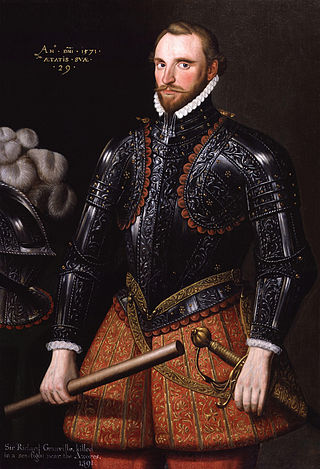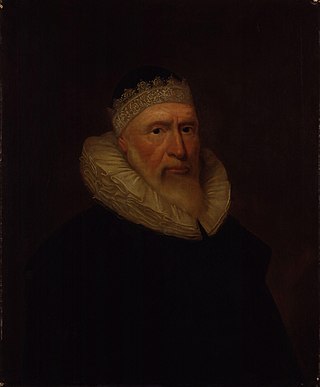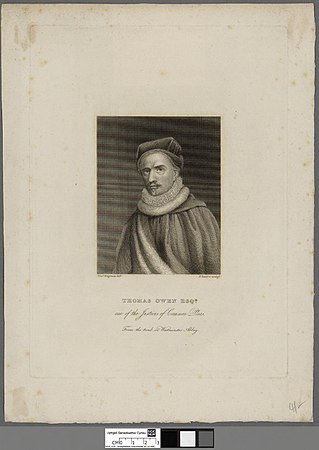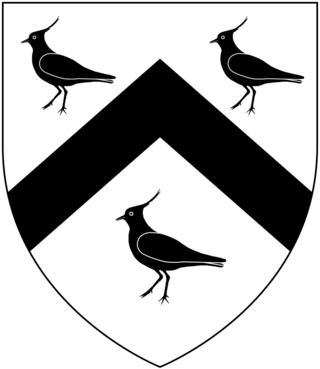Related Research Articles

Sir Thomas Wyatt was a 16th-century English politician, ambassador, and lyric poet credited with introducing the sonnet to English literature. He was born at Allington Castle near Maidstone in Kent, though the family was originally from Yorkshire. His family adopted the Lancastrian side in the Wars of the Roses. His mother was Anne Skinner, and his father Henry, who had earlier been imprisoned and tortured by Richard III, had been a Privy Councillor of Henry VII and remained a trusted adviser when Henry VIII ascended the throne in 1509.

Cirencester is a market town and civil parish in the Cotswold District of Gloucestershire, England. Cirencester lies on the River Churn, a tributary of the River Thames. It is the eighth largest settlement in Gloucestershire and the largest town within the Cotswolds. It is the home of the Royal Agricultural University, the oldest agricultural college in the English-speaking world, founded in 1840. The town had a population of 20,229 in 2021. The town is 18 miles (29 km) northwest of Swindon, 18 miles (29 km) southeast of Gloucester, 37 miles (60 km) west of Oxford and 39 miles (63 km) northeast of Bristol.

Sir Richard Grenville, also spelt Greynvile, Greeneville, and Greenfield, was an English privateer and explorer. Grenville was lord of the manors of Stowe, Cornwall and Bideford, Devon. He subsequently participated in the plantations of Ireland specifically the Munster plantations, the English colonisation of the Americas and the repulse of the Spanish Armada.

Sir Julius Caesar was an English lawyer, judge and politician who sat in the House of Commons at various times between 1589 and 1622. He was also known as Julius Adelmare.

Henry Carey, 1st Baron Hunsdon, was an English peer and courtier. He was the patron of the Lord Chamberlain's Men, William Shakespeare's playing company. The son of Mary Boleyn, he was a cousin of Elizabeth I.

Catherine Carey, after her marriage Catherine Knollys and later known as both Lady Knollys and Dame Catherine Knollys,, was chief Lady of the Bedchamber to Queen Elizabeth I, who was her first cousin.

John Freind was an English physician.
Events from the 1530s in England.

Sir Geoffrey Boleyn was an English merchant and politician who served as Lord Mayor of London from 1457 to 1458. He purchased the manor of Blickling, near Aylsham, in Norfolk from Sir John Fastolf in 1452, and Hever Castle in Kent in 1462. He was the great-grandfather of Queen Anne Boleyn, the mother of Queen Elizabeth I. Sir Geoffrey built the domestic, mercantile and civic fortunes of the Boleyn family, and raised its status from the provincial gentry, as his brother Thomas Boleyn made a career of distinction in church and university, together building the family's wealth, influence and reputation.
Sir Richard Martin was an English goldsmith and Master of the Mint who served as Sheriff and twice as Lord Mayor of the City of London during the reign of Elizabeth I.
Walter Haddon LL.D. (1515–1572) was an English civil lawyer, much involved in church and university affairs under Edward VI, Queen Mary, and Elizabeth I. He was a University of Cambridge humanist and reformer, and was highly reputed in his time as a Latinist. He sat as an MP during the reigns of Mary and Elizabeth. His controversial exchange with the Portuguese historian Jerónimo Osório attracted international attention partly on account of the scholarly reputations of the protagonists.
William Latymer or Latimer was an English evangelical clergyman, Dean of Peterborough from 1560. He was chaplain to Anne Boleyn, and is best known for his biography of her, the Chronickille of Anne Bulleyne.

Thomas Owen was an English judge and politician in the reign of Elizabeth I.

Thomas Boleyn, LL.B, , was the Master of Gonville Hall, Cambridge from 1454 to 1472, the seventh to hold that position. During the later 1440s, through three separate acts of foundation, he was one of the small group appointed to formulate the statutes of what became Queens' College in Cambridge. His brother Sir Geoffrey Boleyn, Lord Mayor of London 1457-58, was the great-grandfather of Anne Boleyn, Queen consort of England.
Wilfred Joseph Cripps was an English antiquarian and a writer on antique silver plate.

John Twynyho of Cirencester, Bristol and Lechlade, all in Gloucestershire, was a lawyer and wealthy wool merchant who served as Recorder of Bristol, as a Member of Parliament for Bristol in Gloucestershire in 1472-5 and in 1484 and for the prestigious county seat Gloucestershire in 1476. In 1478 he was Attorney General to Lord Edward (the future King Edward V, eldest son and heir of King Edward IV.
Robert Huick, Huicke, or Hewicke, of London, Enfield and St. Martin-in-the-Fields, Middlesex, was an English physician. He was also briefly a member of parliament for a few weeks in the years 1547 and 1553. He was educated at Merton College, University of Oxford. By 1546, he was married to Elizabeth Slighfield, a sister of Henry and Walter Slighfield of Peckham, Kent; they had one or two daughters. He later married Mary Woodcock, and they had one daughter. One of his daughters was Anna Huick, wife of Sir Mark Steward (1524-1604), MP, of Stuntney in Cambridgeshire. Huick was an academic of the University of Oxford and served as Principal of St Alban Hall from 1535 to 1536. He was also a physician and was briefly a Member of the Parliament of England for Wootton Bassett in 1547 and for Camelford in March 1553.

The title Baron Cobham has been created numerous times in the Peerage of England; often multiple creations have been extant simultaneously, especially in the fourteenth century.
Andrew Melville of Garvock was a Scottish courtier and servant of Mary, Queen of Scots.
Thomas D'Oylie or D'Oyly (c.1548-1603) was a leading English physician and Spanish scholar of the Elizabethan era.
References
- 1 2 3 'Mascall-Meyrick', in Alumni Oxonienses 1500-1714, ed. Joseph Foster (Oxford, 1891), pp. 982–1007. British History Online (accessed 29 November 2017)
- 1 2 3 4 Lee, Sidney, ed. (1894). . Dictionary of National Biography . Vol. 37. London: Smith, Elder & Co. p. 22.
- ↑ T. Evans, 'Queen Elizabeth's Physician', The Lancet (9 November 1889), p. 987.
- ↑ Treasures of the English Church – Sacred gold and silver 800 to 2000
- ↑ A. J. Collins, Jewels and Plate of Queen Elizabeth I (London, 1955), p. 197 & plate III.
- ↑ "Chester-Master Family", National Archives of the United Kingdom. Retrieved 24 January 2010.